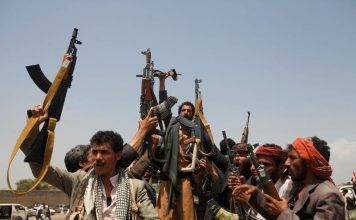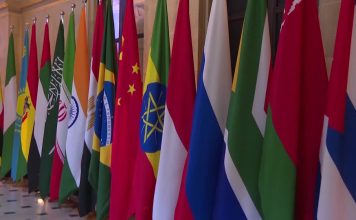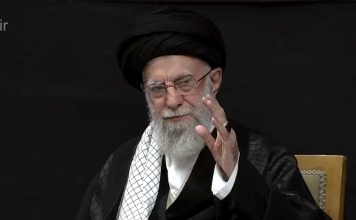Cases of COVID-19 in Iran rose sharply this week. Iran’s Health Ministry reported 2,625 new coronavirus cases and 174 deaths in 24 hours. More than 19,000 people have now died in Iran from the virus since the outbreak began.
The U.N. Security Council geared up to vote on a U.S. proposal to extend an arms embargo on Iran embedded into the nuclear deal.
U.S. President Donald Trump sees the ban as a key measure to limit the Iranian government’s activities in the Middle East, which Trump says is a form of state sponsored terrorism.
Washington’s proposal seeks to extend the weapons ban “until the Security Council decides otherwise,” but some experts say that pushing through the measure will be difficult.
Russia and China have expressed opposition to the proposal, and have veto powers which could block U.S. efforts to extend the embargo. Washington says both countries want to sell arms to Iran once the ban expires in October.
The blast in Beirut which left more than 170 people dead and thousands injured, has led to the postponement of the verdict for four men accused of assassinating Lebanon’s former Prime Minister Rafic Hariri. Hariri was killed in a car bomb in Beirut in 2005.
The men are believed to have ties to Iran-backed Hezbollah. Hezbollah, which says it does not recognize the tribunal overseeing the case, has repeatedly refused to hand over defendants linked to the assassination.
Lebanese officials said the explosion in Beirut on August 4 was caused by 2,750 tonnes of ammonium nitrate stored unsafely in a warehouse at Beirut’s port. The blast caused a public outcry in Beirut, leading to the resignation of Lebanon’s government.
Despite international calls for an independent investigation, authorities said Lebanon’s judiciary would handle any probe into the blast. Some analysts believe Iran-backed Hezbollah may be responsible for the explosion after reports that the militia group took delivery of weapons shipped over from Iran at the port were published. No-one has yet come forward to claim ownership of the ammonium nitrate.
And the Iranian government arrested five men charged with spying for foreign powers. The men have been accused of gathering information and conducting covert operations for Britain, Germany and Israel.
One of the men, named by judiciary spokesman Gholamhossein Esmaili as Shahram Shirkhani, is accused of spying for Britain and trying to recruit Iranian officials for Britain’s MI6 intelligence service.





